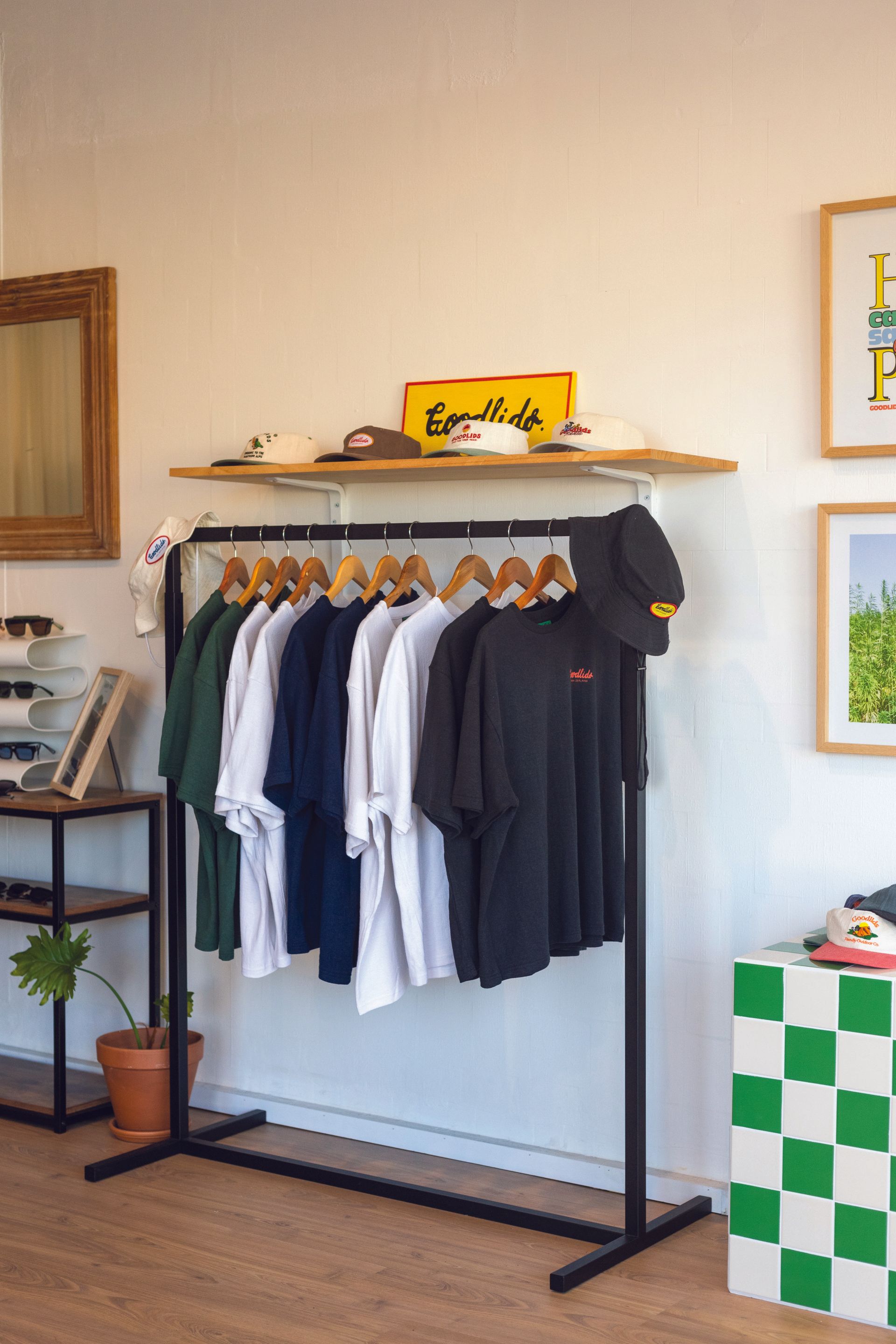
Hats off to you
Words: Maggie Wicks
Somehow, one of the world’s most sustainable and comfortable fabrics is one of the most misunderstood. Hemp, which requires a fraction of the water that cotton needs to grow, which grows like a weed in all kinds of soil, is antibacterial and breathable and softens with age, is still confused with marijuana.
Even Dane Watson, founder and creative director of hemp headwear and streetwear label Goodlids, admits he was “a bit wet behind the ears” when it came to the difference.
“I had no idea,” he says. “My brother-in-law was wearing this T-shirt. He told me it was hemp and how it was sustainable. I was like, ’isn’t that like marijuana?’ I really didn’t know.”
So he went away, did some research and saw an opportunity. “It’s a cool, cool fabric. I was sort of blown away by it.” However, the market in hemp streetwear “was heavily referenced and related to the wider cannabis culture of smoking weed and that sort of stuff. So I thought, what does that look like if we move away from that culture?”
The result was Goodlids, which launched in November 2019, and the timing couldn’t have been better. New Zealand was building up to the cannabis referendum and Watson says the education around that campaign has helped consumers – most customers now have a basic understanding of the differences between hemp and marijuana.
“We got really lucky with the timing,” says Watson. “I think people now understand at least on a surface level that there are environmental and performance properties of hemp that are beneficial to the wearer and the planet.”
To clarify, hemp and marijuana are both cannabis plants, but whereas marijuana is grown for its medicinal and recreational properties, hemp is grown for fibre for clothing and food. With trivial levels of the psychoactive element THC (less than 0.3%), hemp won’t get you any higher than those clove cigarettes you used to smoke.
(The plants look and smell similar, however, so if you ever see or smell something interesting in an open field, don’t get too excited, you’re almost definitely looking at a field of hemp.)
Goodlids opened its first bricks and mortar store in Uptown in December last year. Watson is a local boy and he’s motivated; he grew up in Mt Eden and Epsom, attended Auckland Grammar and represented New Zealand on the world stage at the under-19 cricket world cup before completing a BCom and launching Goodlids when he was 25.
Three years later, the company sells its hemp wares to Kiwis and on the international stage. Sales to Australia, the UK, USA and Canada make up about 40% of the business.
The hemp for Goodlids’ products is grown, spun into yarn and woven into fabric in Shenzhen, China. While hemp is grown as a crop in New Zealand, it’s an underdeveloped sector. It’s a labour-intensive crop, so local hemp farms primarily process their product for food such as hemp hearts, seeds and supplements, which is easier than turning the plant fibres into fabric.
Goodlids is an impressively young company. Watson now has six full-time staff (including his younger brother), all in their twenties, plus a team of creatives who are helping to shape the brand’s trajectory. He says the store’s physical presence is an important aspect of the business.
“I’d love to see more of a return to bricks and mortar, I think it’s a beautiful part of the storytelling. We always used to do a pop-up over summer and I learnt quickly that it helps to differentiate yourself in a crowded market. But I also think it’s a really important part of the customer experience – people being able to touch and feel and get that sense of quality.”
The business is also stoked to be part of the Uptown scene. “This is a cool area,” says Watson, “with so many cool things going on. We’ve got Mibo that’s just opened up on the corner, which I think is the best cafe in Auckland. We’ve got Schapiro’s down the road, which is a great hub. I actually think Uptown is one of the last true places in Auckland where you have shopping experiences that are unique, where you’re not getting the chain stores. It’s just real, authentic businesses. We love being a part of it.”


Goodlids
